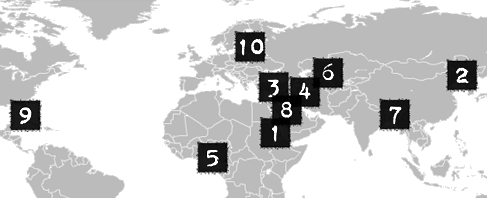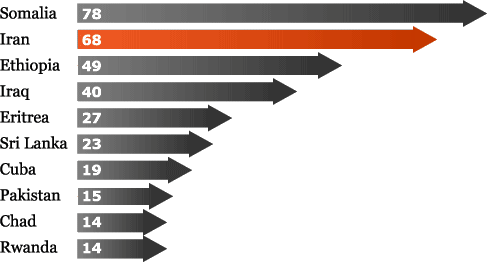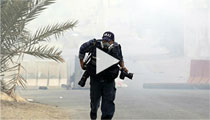Since the disputed re-election of President Mahmoud Ahmadinejad in 2009, the regime has continued its campaign against the press by imprisoning many dozens of journalists, harassing and intimidating others, and routinely banning reformist publications. Jailed reporters were subject to abusive conditions that included extended solitary confinement, physical abuse, and denial of family visits and medical treatment. Political blogger Sattar Beheshti died in state custody in November, the third journalist to die in Iranian detention since 2003. Fellow inmates at Evin Prison said Beheshti, 35, had been tortured. The authorities continued to censor the Internet, blocking millions of websites, including news and social networking sites, and announcing the creation of a national Internet that would enforce even stricter controls. In the run-up to the 2013 election, the regime stepped up its assault on the international press. After a Tehran jury voted in late September to convict Reuters on anti-state charges for a faulty video headline, the government suspended the agency’s accreditation and banned its journalists from reporting. BBC journalists were also arrested, questioned, and intimidated throughout the year. In March, the broadcaster reported a “sophisticated cyberattack” on its email and Internet services that coincided with efforts to jam its satellite feeds into Iran. In October, Europe’s largest satellite providers ceased transmission of 19 Iranian state-operated satellite television and radio channels in response to sanctions imposed by the European Union.
Iran
» Mass imprisonments used to silence critical voices; blogger dies in custody.
» Authorities maintain one of the world’s strictest Internet censorship regimes.
Since the disputed re-election of President Mahmoud Ahmadinejad in 2009, the regime has continued its campaign against the press by imprisoning many dozens of journalists, harassing and intimidating others, and routinely banning reformist publications. Jailed reporters were subject to abusive conditions that included extended solitary confinement, physical abuse, and denial of family visits and medical treatment. Political blogger Sattar Beheshti died in state custody in November, the third journalist to die in Iranian detention since 2003. Fellow inmates at Evin Prison said Beheshti, 35, had been tortured. The authorities continued to censor the Internet, blocking millions of websites, including news and social networking sites, and announcing the creation of a national Internet that would enforce even stricter controls. In the run-up to the 2013 election, the regime stepped up its assault on the international press. After a Tehran jury voted in late September to convict Reuters on anti-state charges for a faulty video headline, the government suspended the agency’s accreditation and banned its journalists from reporting. BBC journalists were also arrested, questioned, and intimidated throughout the year. In March, the broadcaster reported a “sophisticated cyberattack” on its email and Internet services that coincided with efforts to jam its satellite feeds into Iran. In October, Europe’s largest satellite providers ceased transmission of 19 Iranian state-operated satellite television and radio channels in response to sanctions imposed by the European Union.
Since the disputed 2009 elections, the once-robust reformist media have been suffocated by a government assault that has included the banning of publications and the mass imprisonment of journalists on anti-state charges. CPJ ranks Iran among the 10 Most Censored Countries in the world.

| 1. Eritrea 2. North Korea 3. Syria | 4. Iran 5. Equatorial Guinea 6. Uzbekistan | 7. Burma 8. Saudi Arabia 9. Cuba | 10. Belarus |
In an attempt to silence critical voices, the authorities have maintained a revolving-door policy for imprisoning journalists, freeing some detainees on furloughs even as they make new arrests
Dozens of Iranian journalists have fled into exile in recent years due to harassment and the threat of imprisonment, CPJ research shows. Only Somali journalists have fled in higher numbers.

In addition to lengthy jail terms, the authorities also sentenced journalists to flogging. Online journalist Mehdi Khazali was sentenced in February to 14 years in prison, 10 years in exile, and 90 lashes for "insulting the supreme leader," Ayatollah Ali Khamenei.

